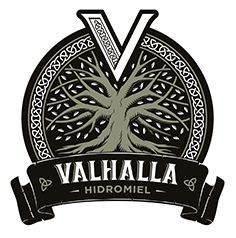- News
- 6 likes
- 129738 views
- 0 comments
- christmas mead, Viking Christmas
YULE: VIKING CHRISTMAS
We already know that mead was used by the Vikings in their meetings and celebrations, and Christmas would be no less to enjoy this wonderful drink that was so famous among the Nordics. But the Vikings did not have Christmas, their celebration these dates was what was called Yule.
Beginning of Yule
Yule was held on December 21, to celebrate the winter solstice, the longest night of the year. It was a celebration held in the pagan villages, among them the Vikings, where relatives, friends and acquaintances gathered to honor that night.
At this time, under the roof of all the houses, a tree was placed representing Yggdrasil, the great ash tree.
The Yule was considered as a moment of rest, of end of cycle in the work, the end of the year. It was celebrated with a great sacrifice dedicated to the gods, especially Thor, to continue with a great banquet where they ate the animals they sacrificed. In addition, they burned the ash tree trunk and sat around its bonfire.
It was a festival that lasted about two weeks, coinciding with the last two months of the Viking calendar, also celebrating the end of the year.
Yule's original Christmas
All these data that coincide with our Christmas celebrations, lead us to think that Christmas comes from this pagan festival called Yule, don't you think?
It goes without saying that during these festivities a toast was made with the drink par excellence: mead, which Odin named his favorite drink. What would a Viking celebration be without mead and its toasts?
The Yule is still present today, as in some Scandinavian countries and Great Britain have managed to retain some of its wonderful traditions, such as burning a large trunk.
They are dates to meet with your loved ones, celebrate and enjoy together. And since we are on the eve of Christmas, what better way than to give and toast with our own with an excellent pitcher of mead?

Comments (0)